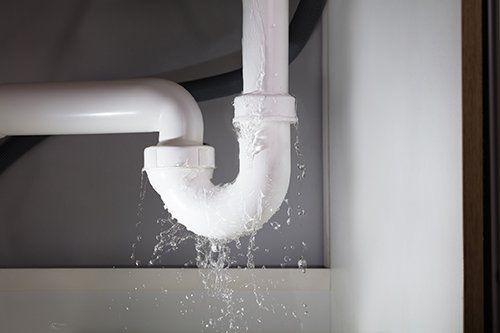Your Home's Common Common Factors of Leakage: Detailed Examination
Your Home's Common Common Factors of Leakage: Detailed Examination
Blog Article
They are making a few great points on the subject of Common Water Leaks In House as a whole in this post below.

Leakages not only create waste of water yet can additionally create unneeded damages to your residence and promote undesirable organic development. Water leaks could go unnoticed considering that most of the pipework in our house is concealed. By looking as well as understanding for daily scenarios that cause leaks, you can safeguard your residence from future leakages as well as unneeded damages. Today, we will certainly look at six leakage causes that may be creating your pipes to leak.
Trespassing origins
Many water leakages start outside the house as opposed to inside it. If you observe a sudden decrease in water stress, state in your tap, take some time to go out and examine your backyard. You may discover damp spots or sinkholes in your lawn, and that might mean that tree origins are attacking water lines creating water to seep out. You can have your plumber look for intrusion, specifically if you have trees or shrubs near your residential or commercial property.
Corroded water supply
As time goes by, your plumbing system ages and rust such as rust may start eating away the pipelines. This may be the reason for discoloration or bending on your pipes. This calls for an inspection with your plumber promptly. Take into consideration changing the pipelines given that they are at a higher threat of rust than the newer versions if our plumbing system is old.
Malfunctioning Pipe Joints
Pipe joints can weaken over time, resulting in water leaks. If you have loud pipelines that make ticking or banging sounds, particularly when the hot water is turned on, your pipeline joints are most likely under a lot of stress.
Instantaneous temperature level adjustments.
Severe temperature level changes in our pipelines can cause them to increase and also get all of a sudden. This development and also contraction might create fractures in the pipes, especially if the temperature level are below freezing. If you maintained an eye on exactly how your plumbing works, it would certainly be best. The existence of the formerly discussed circumstances often indicates a high threat.
Poor Water Connectors
At times, a leakage can be triggered by loosened hose pipes as well as pipelines that provide your home appliances. In instance of a water connections leak, you might observe water running directly from the supply line or puddles around your home appliances.
Obstructed Drains
Clogged drains might be aggravating and also inconveniencing, however they can in some cases end up creating an overflow bring about rupture pipelines. Maintain getting rid of any type of products that might decrease your drains pipes that could clog them to avoid such inconveniences.
All the above are causes of leakages however not all water leakages arise from plumbing leaks; some leaks might come from roof covering leaks. All leaks must be repaired instantly to avoid water damages.
Leaks not just trigger waste of water but can likewise cause unnecessary damage to your home and also advertise undesirable natural growth. By comprehending and looking for daily situations that create leaks, you can shield your house from future leakages as well as unnecessary damages. Today, we will look at 6 leak creates that may be causing your pipelines to drip.
At times, a leakage can be created by loose hoses as well as pipelines that provide your appliances. In instance of a water connections leakage, you might see water running directly from the supply line or pools around your appliances.
How To Check For Water Leak In Your Home
How To Check for Leaks
The average household's leaks can account for nearly 10,000 gallons of water wasted every year and ten percent of homes have leaks that waste 90 gallons or more per day. Common types of leaks found in the home are worn toilet flappers, dripping faucets, and other leaking valves. These types of leaks are often easy to fix, requiring only a few tools and hardware that can pay for themselves in water savings. Fixing easily corrected household water leaks can save homeowners about 10 percent on their water bills.
To check for leaks in your home, you first need to determine whether you're wasting water and then identify the source of the leak. Here are some tips for finding leaks:
Take a look at your water usage during a colder month, such as January or February. If a family of four exceeds 12,000 gallons per month, there are serious leaks.
Check your water meter before and after a two-hour period when no water is being used. If the meter changes at all, you probably have a leak.
Identify toilet leaks by placing a drop of food coloring in the toilet tank. If any color shows up in the bowl after 10 minutes, you have a leak. (Be sure to flush immediately after the experiment to avoid staining the tank.)
Examine faucet gaskets and pipe fittings for any water on the outside of the pipe to check for surface leaks.
Undetected water leaks can happen without the home or business owner even realizing. If you suspect a water leak, but not able to find the source. It is time to contact a professional water leak detection service, The Leak Doctor.
How To Find a Water Leak In Your Home
https://www.leakdoctor.com/blog/How-To-Check-For-Water-Leak-In-Your-Home_AE197.html

As an enthusiastic reader on Common Water Leaks In House, I imagined sharing that excerpt was a smart idea. Are you aware of anybody else who is very much interested in the niche? Why not share it. Many thanks for your time. Visit us again soon.
Address emergency plumbing promptly here. Report this page